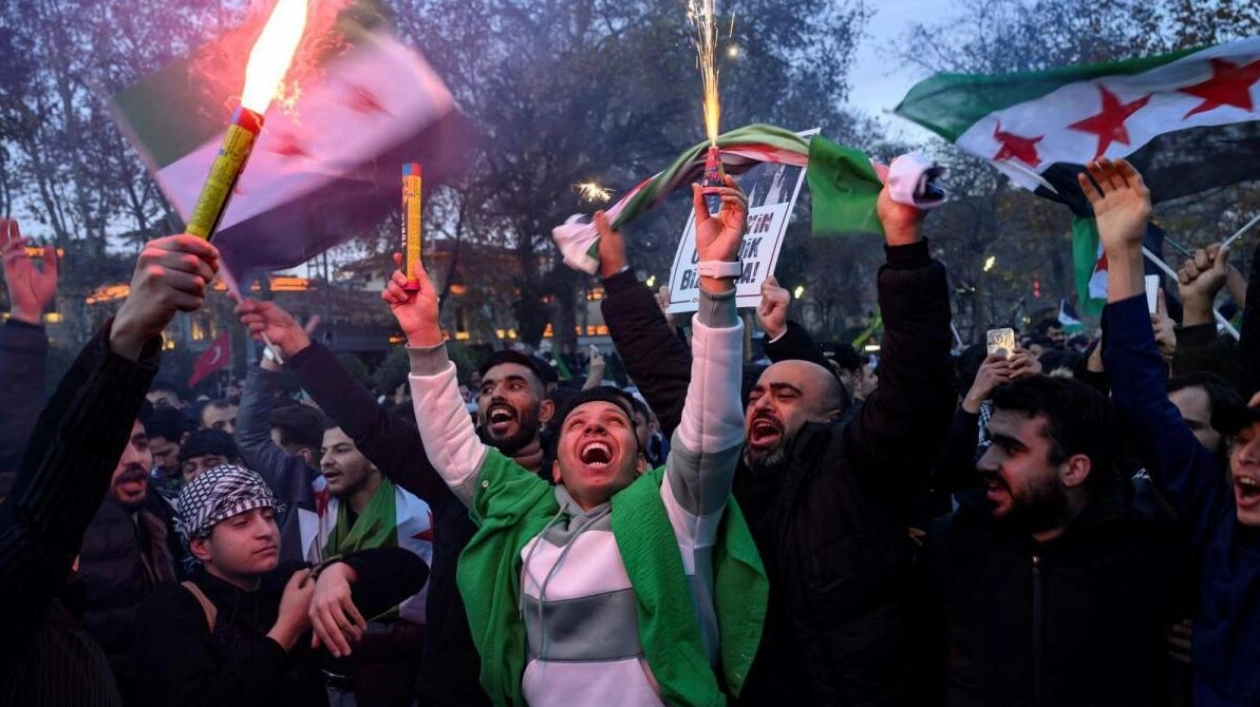On Monday, Syrians woke up to a hopeful yet uncertain future as rebels took control of the capital, Damascus, and President Bashar Al Assad fled to Russia, marking the end of a 13-year civil war and over 50 years of his family's oppressive rule.
The swift advance of a militia alliance led by Hayat al-Tahrir al-Sham (HTS), formerly affiliated with Al Qaeda, represented a significant turning point for the Middle East. Assad's downfall eliminated a stronghold from which Iran and Russia had exerted influence across the Arab world. According to Russian media and Mikhail Ulyanov, Russia's ambassador to international organizations in Vienna, Moscow granted asylum to Assad and his family.
Many governments welcomed the end of Assad's autocratic regime, as they assessed the new landscape of the Middle East. US President Joe Biden noted that Syria is in a period of risk and uncertainty, with Russia, Iran, and Hezbollah no longer holding influential roles. Despite being designated as a terrorist group by the US, Turkey, and the UN, HTS has been working to improve its image to gain international acceptance and reassure minority groups within Syria.
Assad's overthrow could limit Iran's ability to supply weapons to its allies and potentially cost Russia its Mediterranean naval base. It also offers hope for millions of refugees, who have been living in camps across Turkey, Lebanon, and Jordan for over a decade, to finally return home.
The rebels now face the monumental task of rebuilding and governing a country devastated by war, which left hundreds of thousands dead, cities in ruins, and an economy crippled by global sanctions. Syria will require billions of dollars in aid. Ahmed al-Sharaa, known as Abu Mohammed Al Golani, the leader of HTS, addressed a large crowd at Damascus' Umayyad Mosque, stating that a new history is being written in the region.
The Assad regime was notorious for its harsh treatment of political prisoners, with hundreds of thousands held in appalling conditions. On Sunday, jubilant yet often bewildered inmates were released from jails, and families reunited in tears of joy. The White Helmets rescue organization dispatched emergency teams to search for hidden underground cells believed to still hold detainees.
With a curfew imposed by the rebels, Damascus was calm overnight, though some looting occurred at a shopping center and inside Assad's presidential palace. The rebel coalition is working to transfer power to a transitional governing body with executive powers, aiming to build 'a Syria together.'
Golani, a Sunni Muslim, leads a country with a diverse range of religious sects, including Christians and Assad's fellow Alawites. The rapid pace of events has stunned world capitals and raised concerns about further regional instability, especially with ongoing conflicts in Gaza, Lebanon, and tensions between Israel and Iran. The US Central Command conducted dozens of airstrikes targeting known Daesh camps and operatives in central Syria on Sunday. Secretary of Defence Lloyd Austin emphasized the importance of protecting civilians and stated that the United States is closely monitoring the situation.
Source link: https://www.khaleejtimes.com






